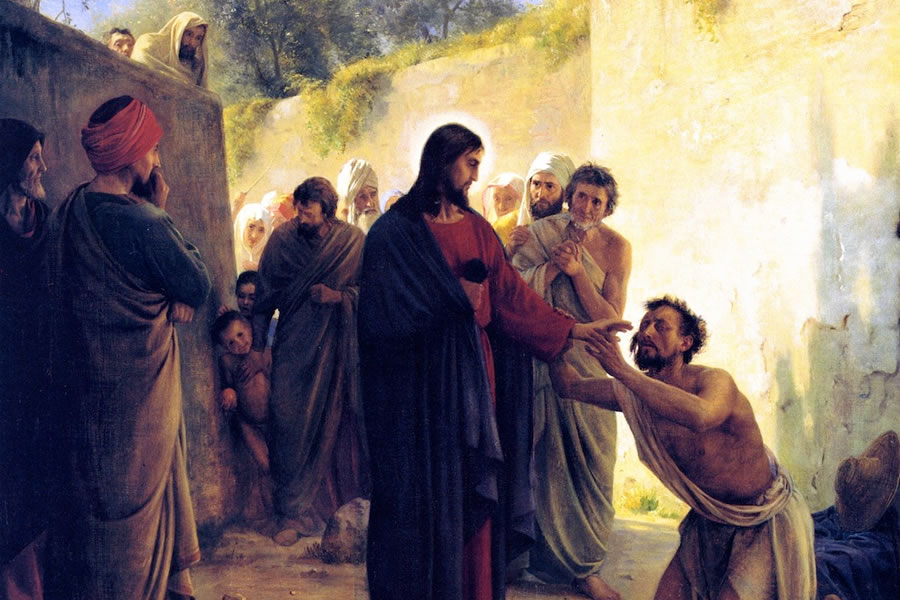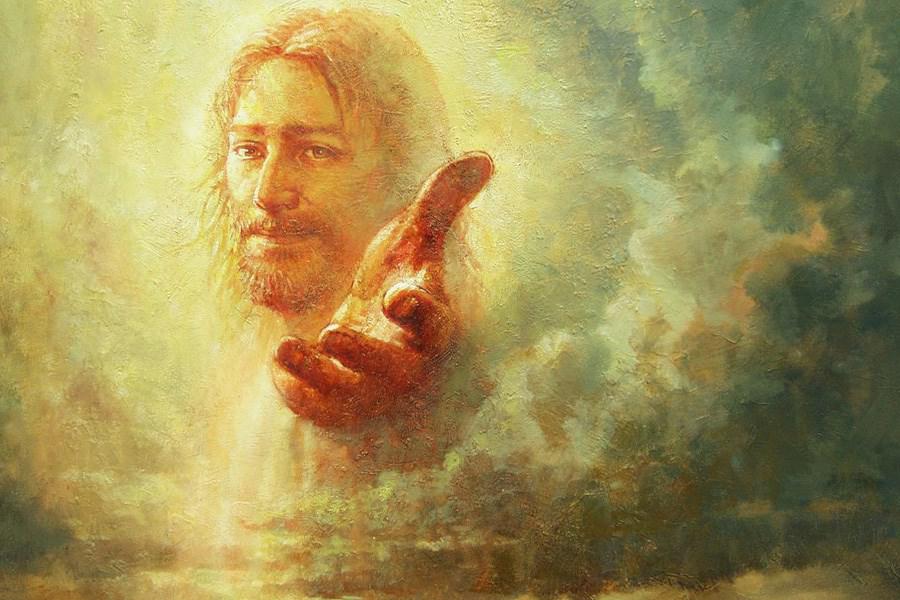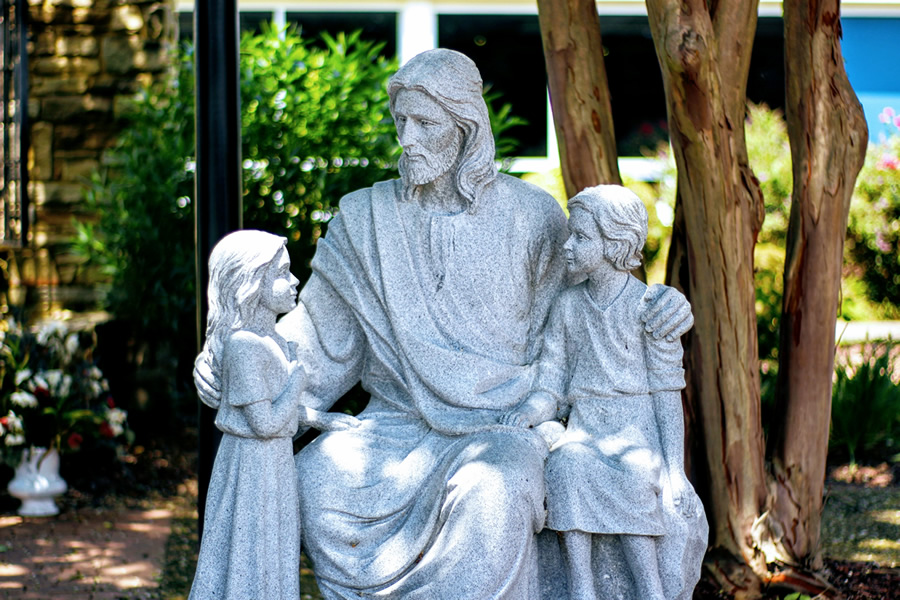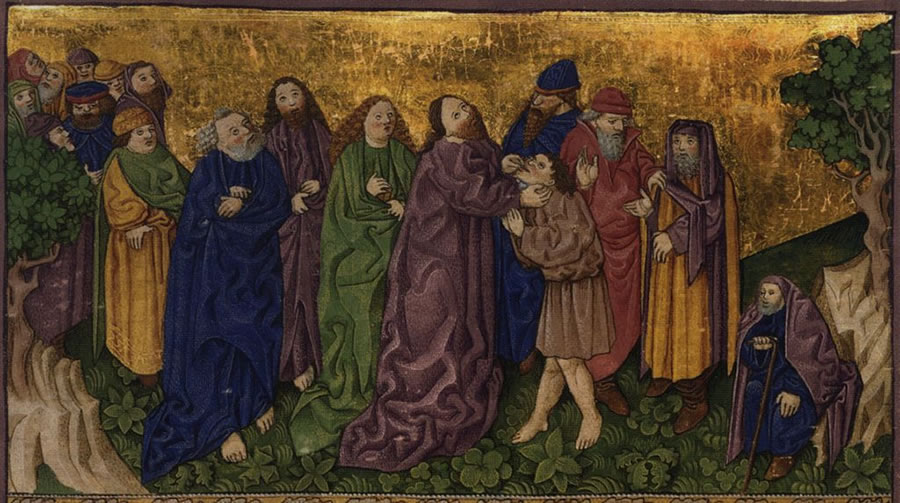
Thirtieth Sunday in Ordinary Time - Jer 31:7-9; Heb 5:1-6; Mk 10:46-52
10-27-2024Weekly ReflectionThe Faithful DiscipleGROW: Although today’s Gospel recounts the healing of Bartimaeus’ physical blindness, the story is a summons for each of us to be healed of our spiritual blindness. Spiritual blindness, an effect of sin, clouds our ability to perceive who we are and who God is. Paradoxically, Bartimaeus’ spiritual eyesight is clear; he recognizes who Jesus is and he sees his own desperate need for Jesus’ help. For us, however, sin acts like dust, obstructing our vision and preventing us from perceiving God’s presence.
READ MORE
Twenty-ninth Sunday in Ordinary Time - Is 53:10-11; Heb 4:14-16; Mk 10:35-45
10-20-2024Weekly ReflectionThe Faithful DiscipleGROW: Our world lays down rules for greatness: wealth, accomplishment in the performing arts, beauty, business acumen. Hmmm. I don’t recall hearing any of these attributes in the Scripture passages today. What I do remember is Jesus saying that whatever authority the disciples exercise must be rendered as service rather than for personal gain: “Whoever wishes to be great among you will be your servant.”
READ MORE
Twenty-eighth Sunday in Ordinary Time - Wis 7:7-11; Heb 4:12-13; Mk 10:17-30
10-13-2024Weekly ReflectionThe Faithful DiscipleGROW: All this talk about wisdom in today’s readings ... why should we care? Born of a familiarity with the heart of God, wisdom is a virtue that grants us discernment to know right from wrong and to follow God’s plan. It is so important to the life of the disciple that it is a gift given to us by the Holy Spirit.
READ MORE
Twenty-seventh Sunday in Ordinary Time - Gn 2:18-24; Heb 2:9-11; Mk 10:2-16
10-06-2024Weekly ReflectionThe Faithful DiscipleGROW: Everything in God’s creation is intended to reflect his goodness and proclaim his glory. It’s not hard to understand this idea when we behold the majesty of the sea. It can be more difficult, however, to remember this is also present in each of us and in our relationships – including that relationship God designed for man and woman: marriage. Our ability to turn away from God means that we sometimes reject, rather than reflect, him.
READ MORE
Twenty-sixth Sunday in Ordinary Time - Nm 11:25-29; Jas 5:1-6; Mk 9:38-43, 45, 47-48
09-29-2024Weekly ReflectionThe Faithful DiscipleGROW: Experience, education, and brainpower give parents wisdom and foresight. They can see the bigger picture and determine, for example, that eating an entire box of cookies will make their child sick – no matter how appetizing the cookies appear. God, likewise, has a perspective that is infinitely broader and deeper than our own. This divine perspective is the lens through which we must understand the strong language Jesus uses in today’s Gospel.
READ MORE
Twenty-fifth Sunday in Ordinary Time - Wis 2:12, 17-20; Jas 3:16-4:3; Mk 9:30-37
09-22-2024Weekly ReflectionThe Faithful DiscipleGROW:How often does ambition get in the way of holiness? In today’s Gospel, Jesus foretells his death, and the Apostles respond by arguing over who among them is most important. But the Apostles’ aspirations and motivation stand in stark contrast to the humility necessary for discipleship; their lack of understanding signals a need for instruction. “If anyone wishes to be first, he shall be the last of all and the servant of all,” Jesus explains.
READ MORE
Twenty-fourth Sunday in Ordinary Time - Is 50:5-9a; Jas 2:14-18; Mk 8:27-35
09-15-2024Weekly ReflectionThe Faithful DiscipleGROW: “Whoever wishes to come after me must deny himself, take up his cross and follow me.” Jesus’ words in today’s Gospel don’t leave much room for “secondary interpretation.” Deny yourself, take up your cross, and follow Jesus. At first glance this may sound intimidating, but let’s think about it in the light of today’s readings. By denying ourselves, we are able to turn more fully toward God and toward others. Isn’t that what James is asking of us in his letter? He says this of faith: “if it does not have works, [it] is dead.” He even uses an example that might sound like something we would hear in a homily today: he asks, if you see someone who doesn’t have proper food or clothing and you simply wish them well without offering assistance, what good are you doing?
READ MORE
Twenty-third Sunday in Ordinary Time - Is 35:4-7a; Jas 2:1-5; Mk 7:31-37
09-08-2024Weekly ReflectionThe Faithful DiscipleGROW: My first thought upon reading today’s Scriptures is that by healing the deaf man, Jesus is fulfilling what God had said he was going to do since the time of the prophet Isaiah: “making the eyes of the blind see and opening the ears of the deaf,” as we heard in the first reading. And indeed this is what Jesus did. But when I re-read the Gospel I was intrigued by the line: “[Jesus] took him off by himself away from the crowd.” Jesus had a reputation as a healer and a teacher, so it stands to reason that he healed people in front of the crowds often. Why, then, does Jesus remove the man from the crowd?
READ MORE
Twenty-second Sunday in Ordinary Time
09-01-2024Weekly ReflectionThe Faithful DiscipleDt 4:1-2, 6-8; Jas 1:17-18, 21b-22, 27; Mk 7:1-8, 14-15, 21-23
GROW: Traditions are so important to us! They help define and preserve our heritage and our communities while also offering comfort and stability. They shape our human world as we see and live it. But in today’s Gospel, Jesus scolds the Pharisees and scribes for allowing “the tradition of the elders” to drive them to hypocrisy: “In vain do they worship [the Lord], teaching as doctrines human precepts.” He accuses them, saying “You disregard God's commandment but cling to human tradition.”
READ MORE